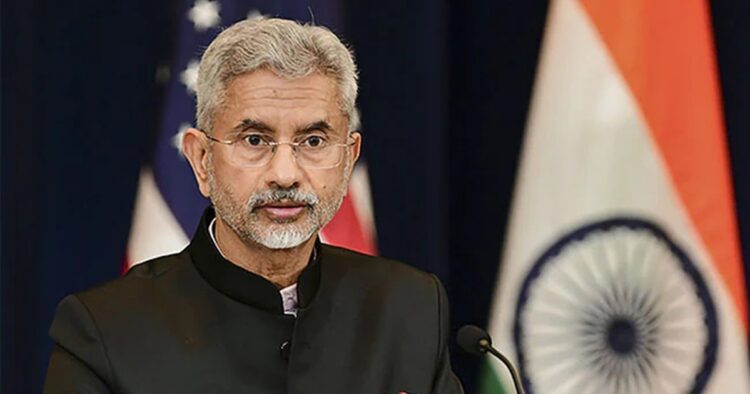External Affairs Minister S. Jaishankar firmly stated on Sunday that Bangladesh must decide the nature of its relationship with India, strongly criticizing recent hostile statements made by the interim government in Dhaka. His remarks came just days after EAM’s meeting with Bangladesh’s Foreign Affairs Advisor Touhid Hossain in Muscat.
Concerns Over Attacks on Minorities
EAM Jaishankar highlighted India’s long-standing ties with Bangladesh, dating back to its independence in 1971. Addressing recent developments, he pointed to the political shift that led to former Prime Minister Sheikh Hasina’s ouster last year.
He expressed India’s deep concern over rising attacks on minorities in Bangladesh, emphasizing that such incidents directly impact India’s perception and response.
“We have a long and special history with Bangladesh going back to 1971. Things happened there last year [Sheikh Hasina’s ouster]. But what is very troubling for India is the spate of attacks on the minorities… obviously, it is something which impacts our thinking and we have to speak up about it, which we have done,” he stated.
He also stressed that while political disagreements are natural, as a neighboring country, Bangladesh must decide the kind of relationship it wants with India.
Criticism of Hostile Statements from Dhaka
EAM Jaishankar criticized the interim government for making contradictory statements about India, calling out its tendency to blame New Delhi for internal issues while simultaneously seeking good relations.
“If every day someone in the interim government stands up and blames India for everything, some of those things if you look at the reports, are absolutely ridiculous. You cannot, on the one hand, say I would now like to have good relations with you, but I get up every morning and blame you for everything that goes wrong. It is also a decision that they have to make,” he said.
He further clarified that while India wants stability in Bangladesh, it will not ignore continuous hostile rhetoric coming from the interim government.
India’s Stance on Security and Stability
During his recent discussion with Touhid Hossain, Jaishankar sent a clear message that Bangladesh “should not normalize terrorism” and should work towards maintaining stability in the region.
Bangladesh is currently governed by Chief Advisor Muhammad Yunus and his team following Sheikh Hasina’s removal. India’s concerns over political instability, rising communal violence, and inflammatory statements from Dhaka have added new complexities to bilateral ties, making it imperative for Bangladesh to clarify its approach toward India.

















Comments